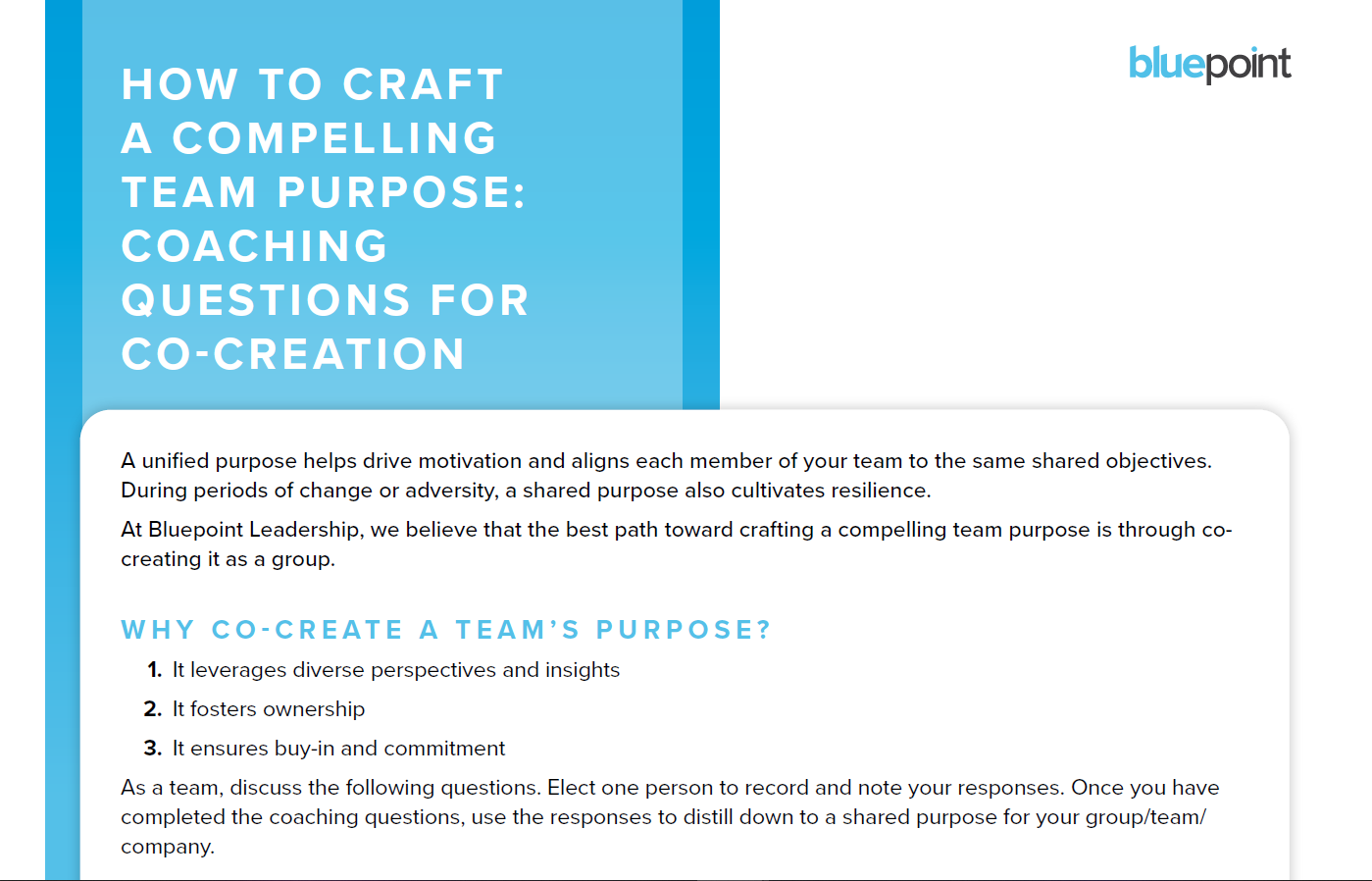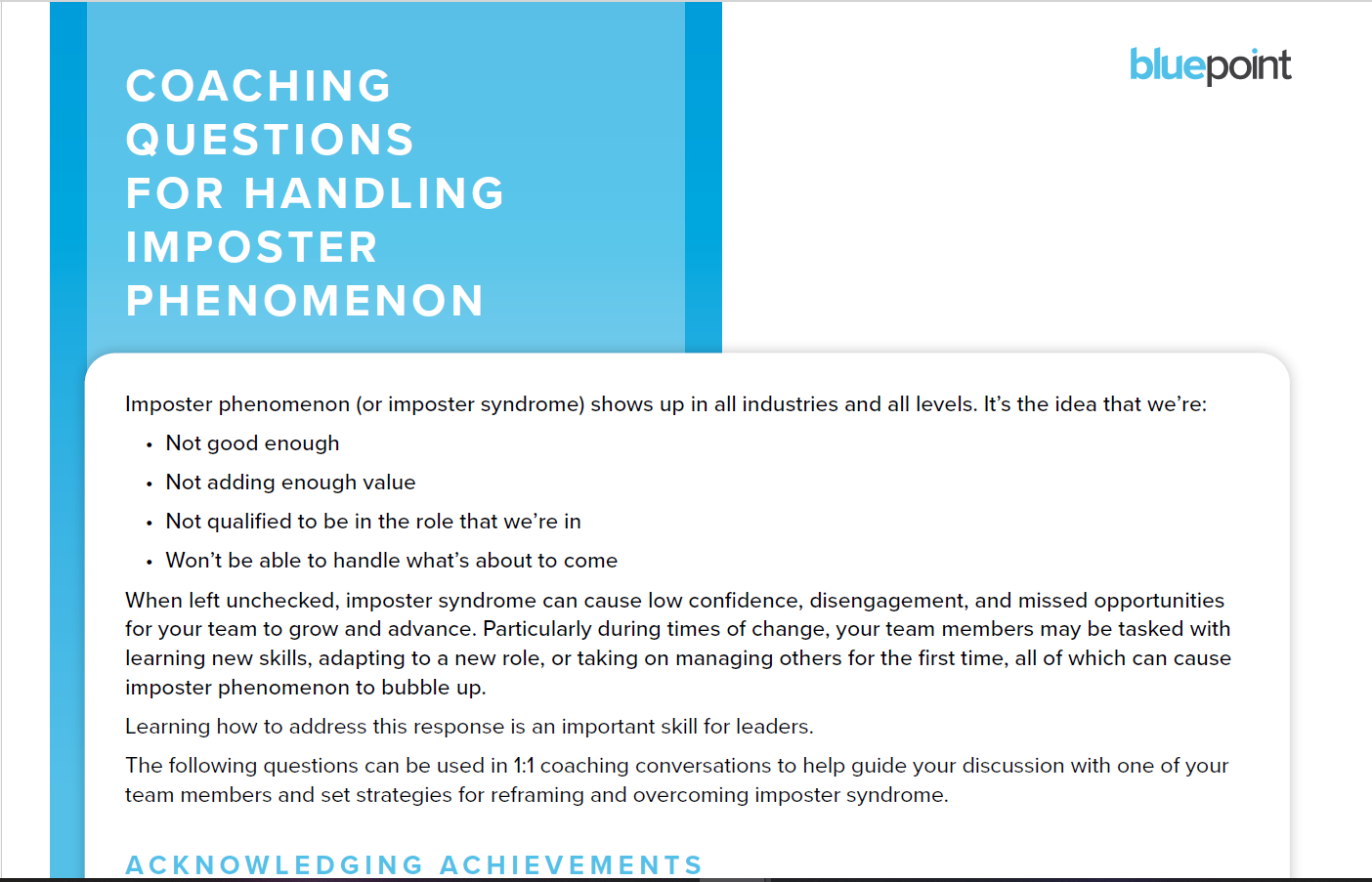I was somewhat surprised when Tavish accepted my invitation for coffee. He was known for being very focused on his work. “Intense” and “driven” were probably the words that best captured his reputation. I’d met him when we sat on the same advisory board and had become curious to learn more about him and his organization. A hardworking, very successful entrepreneur, he had grown his one-person lumber business into a thriving enterprise employing a few thousand people. After exchanging pleasantries in his small, plain office, I asked him if he would share what was unique about his approach to his business and organization.
I expected him to talk about vision, innovation, inspiration, or the like. But he immediately answered, “Faith. Faith in our people, faith in our customers, and faith in myself. Everything that I do as a leader is an expression of faith. To be honest, having true faith in others is often the hardest thing for me, but is probably the most important source of success in our business. To me, it is very simple: the more faith I have in others, the better work they do and the more money we make. It’s not complex. It’s just hard. It is very easy to let doubt, disbelief, and judgment get in the way.”
As Tavish spoke, I understood why I’d been so impressed with him. His philosophy of leadership resonated deeply with my own beliefs about coaching. In fact, if I had to sum up the essence of coaching in one sentence, it would be this: Coaching is an act of faith in others. The great coach sees other people as being full of potential. He or she always makes the assumption that human beings are naturally talented, innately resourceful, and able to learn and change. They are fully capable of making their own decisions and solving their own problems. They can seize their own opportunities. Furthermore, the wise coach knows that when people make their own decisions, create their own solutions, and solve their own problems, they are much more committed to the resulting actions. Coaches see others as reservoirs of untapped abilities, many of which may be unknown even to the person who possesses them, and they see themselves as catalysts who may help reveal and realize these unseen possibilities.
What I’ve just described is what I call the coaching perspective. A perspective is a window on the world, a particular way of seeing and relating to other people. Foundational to all good coaching is a shift in perspective. Without authentically adopting a coaching perspective, no amount of skillful conversations or interpersonal processes will make you an effective coach.
Everything that a coach says and does is predicated on who the coach is and how the coach sees. No one is truly objective— we look out at the world around us through the complex filters of our own beliefs, judgments, cultural conditioning, and so forth. The ways we perceive other people are always colored by our perceptions of ourselves, and the ways we interpret situations we find ourselves in are colored by our internal environments. The term “perspective” takes all this into account—it is your particular way of seeing or thinking about something, and the filters that define it.
A perspective is something we develop, usually unconsciously, over the course of a lifetime. But it is also something we can shift and expand through self-awareness and discipline. Becoming a great coach requires embracing a coaching perspective, and this may necessitate that you become aware of, question, challenge, and even reject other perspectives you’ve habitually adopted. The coaching perspective does not come naturally to most of us. It’s a discipline that needs to be intentionally adopted and rigorously practiced. It starts with seeing people as wonderful portraits ready to be transformed into masterpieces. Most of us credit ourselves with an open mind; coaching gives us the opportunity to prove it. Regardless of your personal feelings for the people you coach, adopting this perspective is a choice you will need to make in order to coach effectively.
This article is adapted from The Master Coach by Gregg Thompson.
About The Author

Gregg Thompson
Gregg Thompson is a keynote speaker, author and executive leadership coach. As a much-in-demand speaker, Gregg leads his audiences on interactive, highly-engaging learning journeys that are both educational and entertaining. He dares audiences to abandon many of their closest-held beliefs about leadership and to explore new ways of seeing, relating to and influencing others. He confronts audiences with their own biases, judgments and attitudes, and challenges them to replace these with fresh new perspectives and practices. He vividly demonstrates how leaders can make a major shift in their personal impact and use their natural strengths to master the art of leadership. Gregg is the author of The Master Coach written for leaders who understand the impact of coaching on performance and career acceleration. The book is an invitation to leaders who want to make a significant shift in their attitudes, values and behaviors and become more coach-like in all of their daily interactions and conversations.
Related Resources
Subscribe to newsletter
Subscribe to our newsletter today and receive innovative, insightful and thought provoking resources (videos, webinars and articles) all effective tools for developing leadership talent.
Connect with Us Today!
This is a gated resource. Contact sales at info@bluepointleadership.com for more information or reach out here: Contact Us
This is a member-only resource. Contact sales at info@bluepointleadership.com for more information.





